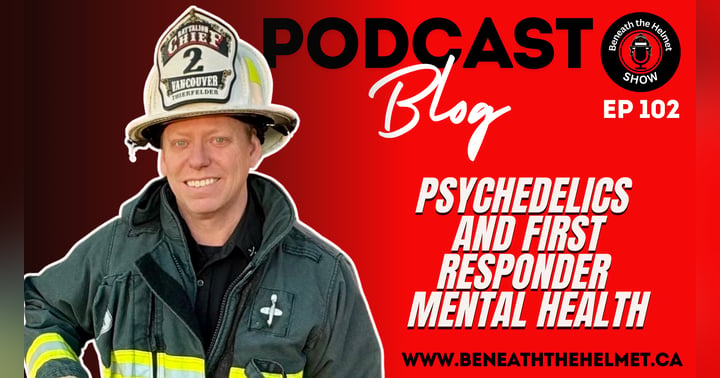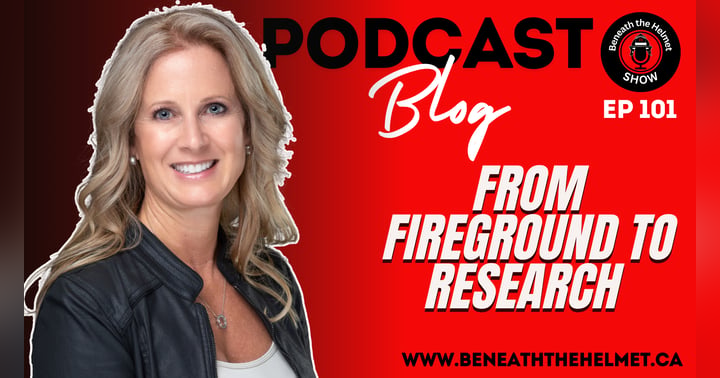From Grenfell to Healing: The Power of Story, Survival, and Self-Leadership

Firefighter Ricky Nuttall's raw account of the Grenfell Tower fire teaches us more about resilience, trauma, and human strength than any textbook ever could.
As a retired Fire Chief and a coach who walks beside first responders on their healing journeys, few conversations have shaken me the way this one did.
In the latest episode of Beneath the Helmet, I sit down with Ricky Nuttall, a London Fire Brigade firefighter, poet, and speaker who responded to one of the UK’s most devastating incidents: the Grenfell Tower fire.
This episode isn't just about fire. It's about what happens after the fire. It's about the ghosts that follow us home, the choices that haunt us, and the hard-won lessons that emerge when we're willing to speak the truth.
Ricky doesn’t hold back. He takes us into the tower with him, into the chaos, and the deafening silence of the 15th floor, where he realizes he might not make it out. And then, he brings us deeper into the aftermath, the drinking, the shame, the disconnection from his son, and the moment he found himself crying on the floor, thinking it might be better if he didn’t wake up.
But that’s not where the story ends. Through poetry, therapy, introspection, and an incredible amount of courage, Ricky found his way out of the darkness. And now, he's using his voice to guide others toward the light.
My Top 5 Nuggets from Ricky's Story:
1. The Body Remembers, Even When the Mind Tries to Move On
Ricky shared how his trauma anniversary would arrive with pinpoint accuracy. He’d feel fine all day, only to have a breakdown at the exact time his crew was called to Grenfell. This is the biology of trauma. The nervous system keeps the score.
2. You Can’t Outrun Moral Injury
Few things cut deeper than being forced to choose who lives and who doesn't. Ricky made the right call to preserve his and his partner's lives, yet he was consumed by guilt. Moral injury is real in public safety. And it deserves the same attention as any physical wound.
3. Redemption Begins with Radical Honesty
Ricky doesn’t sugarcoat a thing. He talks openly about hitting his own child, about screaming, about becoming his stepdad, the man he swore he’d never become. That level of honesty is painful, but it’s the kind that breaks cycles. And it’s the kind of vulnerability our culture desperately needs.
4. Sometimes Healing Starts with a Phone Call
When Ricky was at his lowest, he made three phone calls. All three people picked up. That, he says, is what saved his life. We don’t need perfect support systems. We need people who answer the phone.
5. There Is No Going Back. Only Going Forward.
He said it beautifully: "I was trying to get back to who I was before Grenfell... but my next adventure was learning who I am now." That is self-leadership. Not a return to baseline, but a commitment to discover who we are after the fire, after the trauma, after the breakdown.
If you’re a firefighter, a first responder, a leader, a parent, or a human who has ever faced darkness, please listen. And then listen again.
🎧 Subscribe to Beneath the Helmet on Spotify, Apple Podcasts, or your favourite platform.
If this story moved you, please share it with someone who needs it. Let’s make stories like Ricky’s part of the fire service narrative.
Stay well, Arjuna












